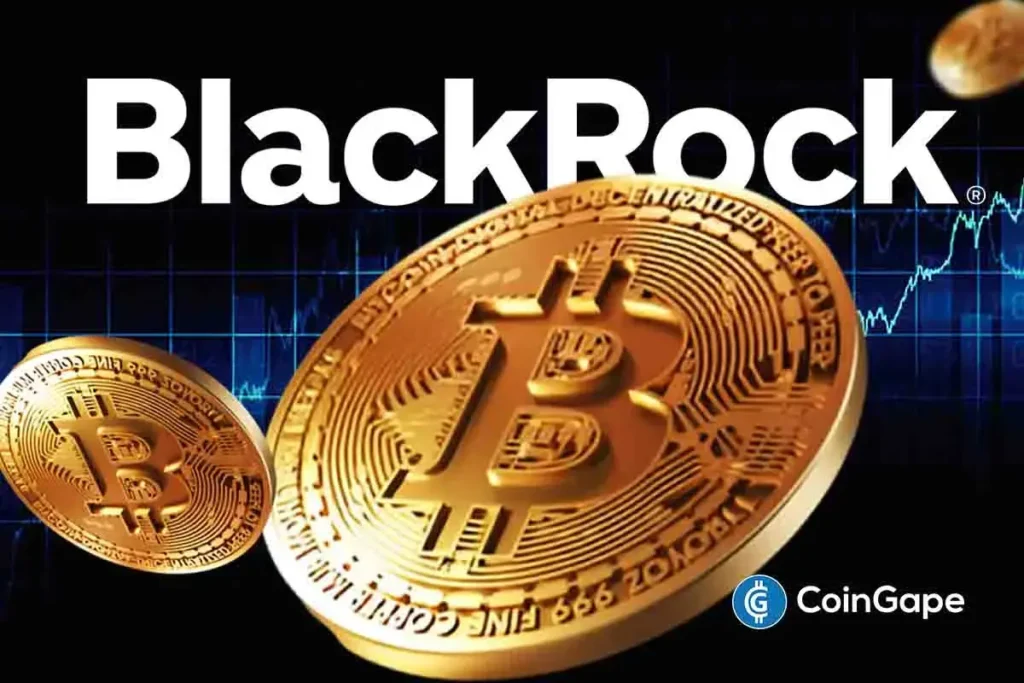BlackRock’s Bitcoin ETF: A New Frontier in Investment Strategies
BlackRock’s Bitcoin ETF, known as IBIT, has rapidly emerged as one of the firm’s most lucrative revenue-generating products, amassing approximately $191 million in revenue in just 1.5 years. This remarkable performance signals a significant shift in investor sentiment towards cryptocurrency and showcases the increasing popularity of crypto-related investment products. With an impressive asset portfolio of $76 billion and an expense ratio of 0.25%, IBIT is set to redefine the landscape of traditional investment strategies.
IBIT’s Rapid Ascent and Competitive Edge
Recent insights shared by Bloomberg’s Eric Balchunas highlight IBIT’s status as BlackRock’s third-highest revenue-generating ETF—surpassing many established funds like IVV, which, despite managing over $627 billion, only generates about $188 million in revenue due to its minimal expense ratio of 0.03%. The fierce competition between these funds underscores the value of investor preferences, particularly in the realm of cryptocurrency, where higher fees can translate to increased revenue.
This competitive edge of IBIT is significant, especially when we consider that most traditional ETFs rely on larger asset bases and much lower expense ratios. While larger funds like IVV offer broader market exposure, they underperform in terms of revenue when compared to specialized products like IBIT. This performance trend indicates not just a growing interest in cryptocurrencies among investors but also reflects how financial products are evolving to cater to these new demands.
A Noteworthy Distinction Among BlackRock’s Offerings
IBIT is on a trajectory to potentially overtake the leading revenue generators within BlackRock’s extensive selection of ETFs. Currently, BlackRock manages around 1,200 ETFs, with IWF leading the pack, generating $211 million, followed closely by EFA at $207 million. The rapid rise of IBIT as a robust contender underscores its appeal—offering investors a regulated means of gaining exposure to Bitcoin without requiring direct ownership.
The impressive growth of IBIT, now only a mere $9 billion in assets away from the top spot, highlights the increasing acceptance of cryptocurrency as a mainstream investment avenue. Notably, this aligns with broader financial market trends, where institutions are progressively adjusting their offerings to accommodate various levels of crypto exposure.
Transformative Trends in the ETF Landscape
The resurgence of crypto demand is undeniably transforming the ETF landscape. Investors’ gravitation towards alternatives like IBIT signifies a notable shift in investment strategies, compelling asset managers to take crypto products seriously as viable sources of revenue. The current growth trajectory of IBIT is not merely a fleeting trend; it showcases a paradigm shift in how traditional finance is embracing digital currencies.
IBIT’s rise also highlights the essential role of expense ratios in generating revenue. While some funds boast extensive asset management portfolios, their ability to yield significant revenue is often limited by lower expense structures. In this context, the BlackRock Bitcoin ETF stands out and sets an informative precedent for future fund structures and investor engagements.
The Rallying Cry for Crypto-Related ETFs
The shift in the investment landscape is further evidenced by IBIT’s capabilities to disrupt established financial products. It has even overtaken BlackRock’s S&P 500 ETF in annual revenue—a telling sign that investor interest in cryptocurrencies isn’t just a temporary phenomenon but a long-standing trend. This results from growing investor demands for creative solutions to engage with cryptocurrencies without the inherent risks of direct ownership.
The increasing acceptance of crypto-oriented products, exemplified by IBIT, illustrates a major evolution in the financial markets, where institutional investors are actively seeking avenues to incorporate digital assets into their portfolios. This significant demand could potentially lead to the development of increasingly tailored investment products that align with the interests of both retail and institutional investors.
The Future of Bitcoin ETFs and Institutional Involvement
As the popularity of IBIT continues to soar, it not only signals a new chapter for BlackRock but also sets the stage for other asset managers to follow suit. With cryptocurrency’s increasing legitimacy and institutional acceptance, investors can expect more products that emulate IBIT’s structure and revenue model. This burgeoning interest presents new opportunities for asset managers to innovate and diversify their offerings.
Investor curiosity surrounding Bitcoin and other cryptocurrencies is unlikely to diminish. Instead, it is anticipated that larger financial institutions will continue to develop diverse investment products around cryptos, further embedding digital currencies into the mainstream. The success of IBIT serves as a testament to the potential for growth in this sector and suggests that the future will involve a broader array of investment solutions centered around cryptocurrencies.
Conclusion
In summary, BlackRock’s Bitcoin ETF, IBIT, has successfully established itself as a significant player in the investment industry within a short time frame. Its impressive revenue generation compared to traditional ETFs marks a transformative moment in finance, reflecting a broader acceptance of cryptocurrency among investors. As demand for crypto-centric investments rises, IBIT stands out as a beacon of innovation, paving the way for future investment strategies. With increasing institutional involvement, the landscape for Bitcoin ETFs and other crypto products is poised for substantial growth, heralding a new era in asset management.


